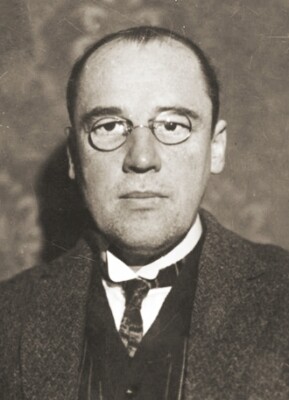Wacław Sierpiński

Wacław Sierpiński
Quick Facts
Biography
Wacław Sierpiński was a renowned Polish mathematician celebrated for his groundbreaking contributions to set theory, number theory, and topology. His work continues to influence mathematical research and education worldwide, with the Sierpiński triangle and Sierpiński carpet being prominent examples recognized by mathematicians and enthusiasts alike.
Early Life
Born on March 14, 1882, in Warsaw, Poland, Wacław Sierpiński grew up during a period of political turbulence under Russian rule. His early fascination with mathematics was evident in his school years, where he excelled in the subject and demonstrated a keen analytical mind. Sierpiński pursued his higher education at the Imperial University of Warsaw, where he was mentored by leading mathematicians of the time.
Academic Career and Discoveries
Wacław Sierpiński’s academic career was marked by prolific research and teaching. After graduating, he began teaching at secondary schools before obtaining a university position. Throughout his career, Sierpiński focused on areas such as set theory, number theory, and topology, publishing over 700 papers and several influential books.
His most celebrated contributions include the Sierpiński triangle and Sierpiński carpet, elegant fractal structures that illustrate the beauty and complexity of mathematical patterns. Sierpiński also introduced various concepts in set theory, such as the Sierpiński set, and made significant advancements in the study of prime numbers and continued fractions.
Achievements and Legacy
Sierpiński’s work has left an indelible mark on mathematics. He was a member of the Polish Academy of Learning and held positions at prestigious institutions, including the University of Lwów and the University of Warsaw. His research inspired generations of mathematicians, and his name lives on in numerous mathematical concepts and awards.
Sierpiński was also known for his role in fostering mathematical collaboration. He was instrumental in shaping the renowned Lwów School of Mathematics and played a key role in the development of Polish mathematics during the interwar period.
Personal Life
While Sierpiński was primarily known for his academic achievements, he maintained a close circle of friends and colleagues who admired his intellect and dedication. He lived through challenging times, including World War II, which affected his work and personal life. Despite adversity, Sierpiński remained committed to advancing mathematical knowledge.
Conclusion
Wacław Sierpiński stands as one of the most influential figures in 20th-century mathematics. His discoveries, particularly the Sierpiński triangle and Sierpiński carpet, continue to captivate both scholars and the general public. For those interested in the history of mathematics or the development of fractal geometry, exploring the life and works of Wacław Sierpiński offers valuable insights and inspiration.
Learn more about other influential mathematicians and explore related topics in the [mathematician category] for deeper insights into the field.
Detailed Information
| Full Name | Wacław Franciszek Sierpiński |
| Gender | Male |
| Education | Imperial University of Warsaw |
| Years Active | 1900-1969 |
| Known For | Sierpiński triangle, Sierpiński carpet, set theory, number theory, topology |
| Major Achievements | Development of the Sierpiński triangle and Sierpiński carpet, significant contributions to set theory, member of the Polish Academy of Learning |